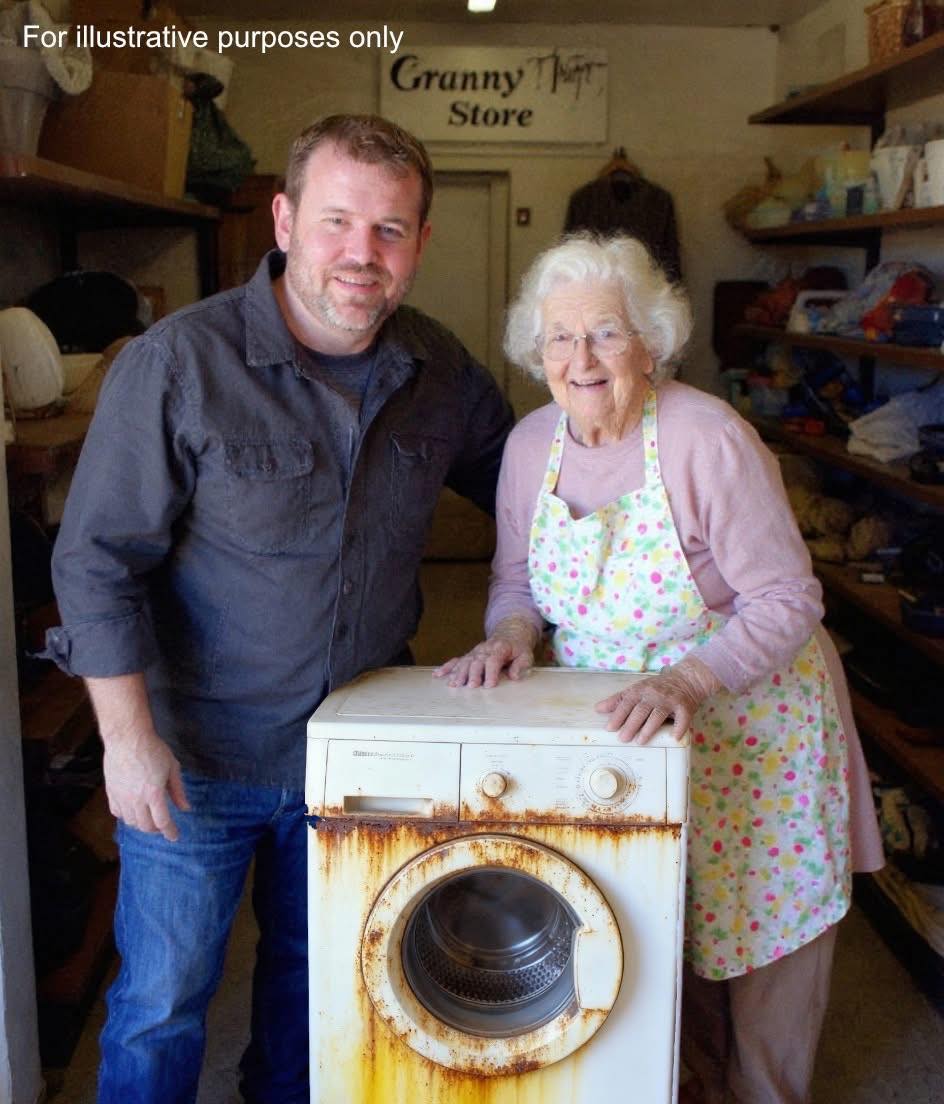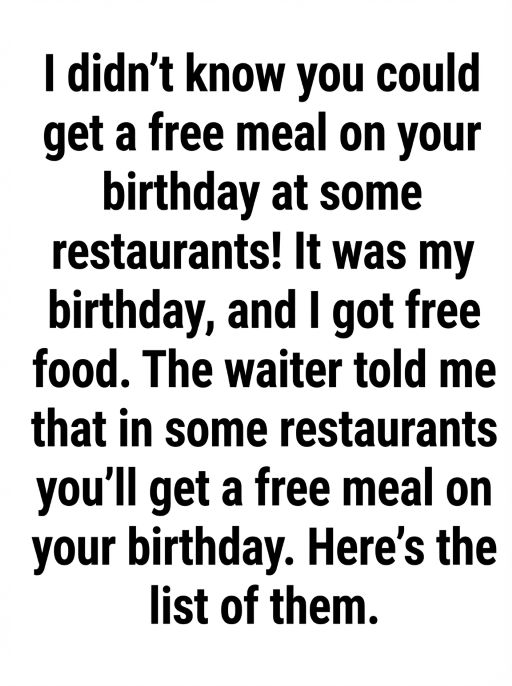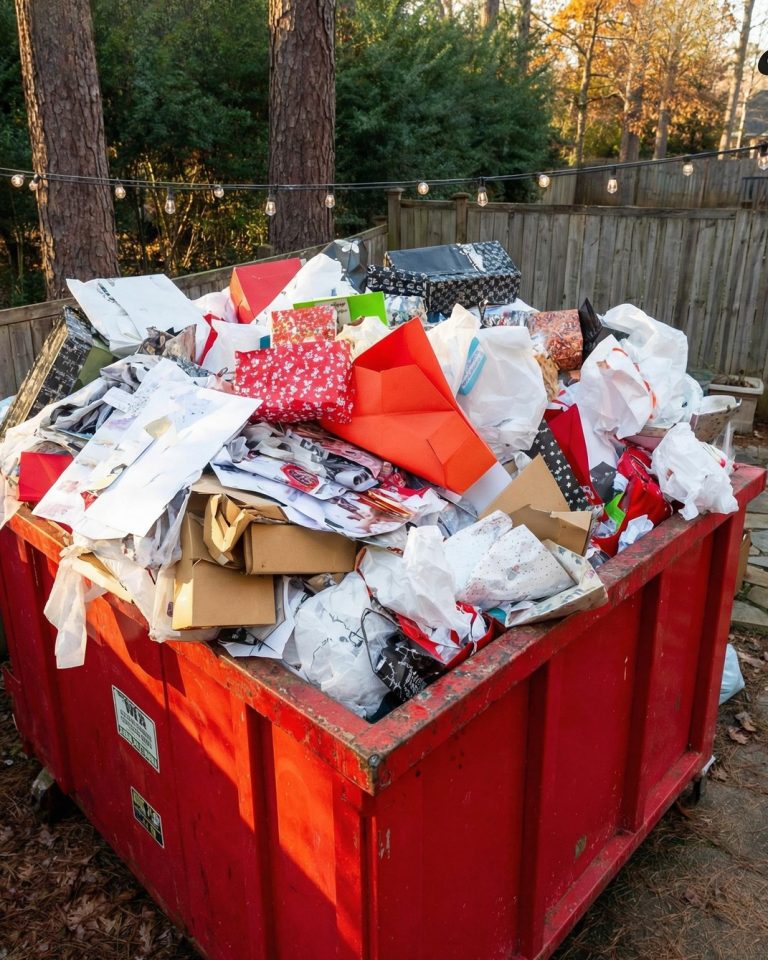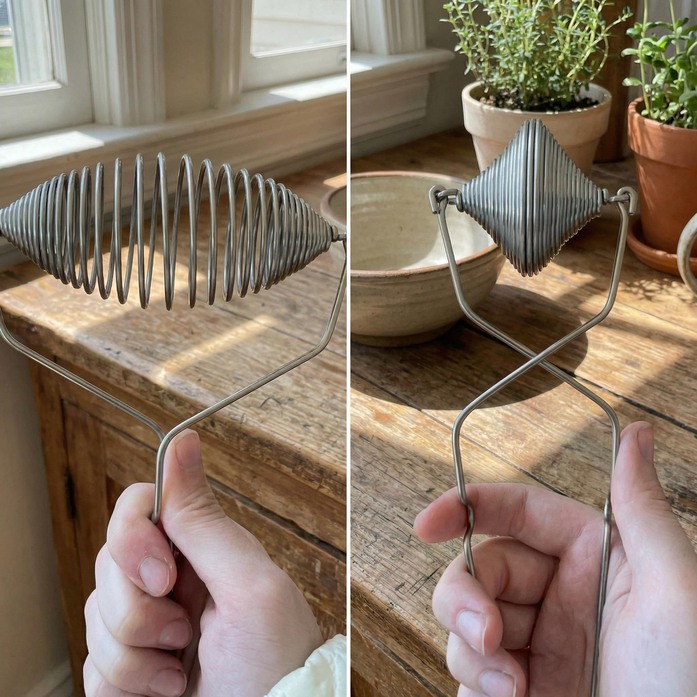
Raising twin girls alone is no picnic, especially with life’s constant surprises. But nothing could’ve prepared me for what I found tucked inside a used washing machine I bought in a pinch.
I’m 34, a single dad to three-year-old twins — Fern and Ivy. Their mom, Mildred, walked out when they were just babies. Since then, I’ve been doing my best to keep us afloat. But a stranger’s kindness turned our world around in a way I never saw coming.
When Mildred left, she said she wasn’t built for diaper changes or late-night cries. I pleaded with her to stay, saying we’d work it out, but she was gone — no calls, no child support. The woman I thought was my forever vanished like she’d never been there.
When it sank in that she wasn’t coming back, I had to figure things out solo.
I landed a remote IT job to be home with the girls, working during their naps, late at night, or early mornings while they went to daycare. Coffee became my fuel. Some days, I was barely awake, but the twins were my priority. It was tough, but we had a routine.
Then this year, everything crashed.
They say trouble comes in waves — and it did.
The twins’ daycare closed suddenly after a COVID scare, leaving me with them all day, every day, with no plan. Then my company “reorganized,” slashing my pay by 20%. While I was still reeling, my mom, Beatrice — my only real support — developed a heart condition that needed surgery Medicare wouldn’t fully cover.
As if that wasn’t enough, my rent shot up. And to top it off, the washing machine quit.
I was in over my head — worse than when Mildred was around. I thought about hunting her down or dragging her to court for child support, but it felt like a dead end. I chose to tackle it alone.
With toddlers, laundry is a must.
Fern and Ivy’s sticky hands, potty mishaps, muddy socks, and yogurt spills were endless. For two days, I scrubbed clothes in the tub. My hands bled, my back ached, and I couldn’t keep up.
I called a repair guy to check the machine.
“It’s toast,” he said. “Fixing it’ll cost more than it’s worth. Buy a used one — it’s cheaper.”
He gave me a contact to scrap the old one.
By day three, my hands were raw and bleeding. Fern saw and said, “Daddy, your hand’s red.” Ivy looked, went pale, and threw up on her shirt. That was my limit.
I pushed aside my pride, put the twins’ stroller in the car, and drove to a secondhand appliance shop with old fridges outside and a hand-painted “NO REFUNDS” sign in the window.
Inside, I spotted a few cheap machines lined up in uneven rows. I was eyeing a worn-out Whirlpool when a soft voice came from behind.
“They’re so cute. Twins?”
I turned to see an older woman, maybe late 60s, with gray hair in a tidy bun and a floral blouse. Her eyes were warm.
“Yeah,” I said, forcing a smile. “Double the fun.”
She chuckled. “Where’s their mom? Or is this Daddy’s day out?”
My throat tightened. I hated that question, but her kindness made me honest.
“No mom. Just us.”
Her face softened. “That’s hard. I’m sorry.”
I shrugged. “Thanks. Some days are rougher, but we’re getting by.”
She nodded, like she got it, and touched the stroller lightly. “You’re doing well. Don’t forget that.”
I thanked her. As she moved toward another aisle, she called, “Look at the Samsung in the corner. I think you’ll like it.”
Her words lifted me more than I expected.
I chatted with another customer about machine brands and chose the Samsung she’d pointed out, paying $120 cash. The salesman said it “still spins.” That was good enough for me.
With the customer’s help, I got it into my old Ford and drove home, hoping it wouldn’t be another waste of money.
At home, I waited for my neighbor to help move the old washer out and the new one in. The twins played with blocks in the living room while I set up the Samsung.
I was too nervous to wait. I had to know if it worked.
I tossed in a pile of dirty clothes, hit the cycle button — and nothing. The drum didn’t budge.
Grumbling, I opened the door and felt around, pretending I knew what I was doing. Then I found it — a small cardboard box jammed inside, stopping the drum.
I yanked it out, puzzled at how it got there. A note was glued to the top, written in neat cursive:
“For you and your children. —R”
I wondered if the shop had missed it, meaning they hadn’t even tested the machine. I was annoyed at first, but those words — “your children” — made me pause.
Was it meant for me?
My hands trembled as I opened the box.
Inside were two shiny house keys on a ring with a red tag and a printed address.
I thought it was a mix-up. But then I pictured the woman from the shop — Rita, maybe? My stomach flipped.
I dropped to the laundry room floor, stunned.
The twins toddled over, curious. “Daddy, what’s that?” Ivy asked.
I held up the keys. “Not sure yet, sweetie.”
I couldn’t sleep that night, wrestling with what to do.
The next morning, after breakfast and baths, I strapped the twins into their car seats and punched the address into Google Maps.
It took us an hour to get there — down a quiet road lined with oak trees. Then I saw it.
A small white house with green shutters and a wraparound porch. It looked like something out of a TV home makeover.
I parked by the curb and double-checked the note. Same address. Same handwriting.
Was this real?
I hesitated before walking up the front path, the twins trailing behind, holding hands.
When I reached the door, I found a sealed envelope taped to it.
It read:
“If you’ve found this, you were meant to. —Rita.”
My chest tightened.
Inside was another note.
“I met you at the thrift store. I saw your hands. I saw your girls. I’ve been where you are — alone, broke, and scared. This was my home. It’s paid off. I have no children to leave it to. Consider it yours if you choose to accept it.”
I felt my knees weaken. The twins tugged at my jeans. “Daddy, can we go inside?”
I turned the key slowly. The door clicked open.
The air inside smelled faintly of lavender and old books. Furniture was covered in white sheets, but everything was clean, cared for — like she’d just stepped out for groceries.
A framed photo sat on the mantel. Rita, younger, holding a baby in a hospital blanket. The date on the frame read 1987.
There was another photo beside it — a little girl, maybe seven, with curly hair and missing teeth. On the back, in faded ink: “For Mama, from Rose.”
I realized “R” didn’t stand for Rita.
It stood for Rose.
As I explored further, I found a letter tucked into a drawer addressed to “Whoever Needs a Second Chance.”
In it, Rose explained she had grown up in that house, but after losing both parents and a child in a car accident decades ago, she couldn’t bear to stay. She’d left it to the thrift store with the note, hoping someone who truly needed a home would find it — not just buy it.
She’d hidden the keys in the washer because, she wrote, “A washing machine means someone trying to start clean.”
Tears spilled down my face.
For the first time in years, I knelt down and prayed — not for help, but in gratitude.
We spent that first night on the floor in sleeping bags, the twins giggling, pointing at the ceiling fan spinning above us.
“Daddy,” Fern whispered, “is this our new house?”
I smiled. “Yeah, sweetheart. I think it is.”
The next morning, sunlight streamed through the shutters, and for the first time, I felt something I hadn’t felt in a long, long time — peace.
Months later, I had the house fixed up. My mom recovered well from surgery and moved into the guest room. Fern and Ivy each had their own space. I even got promoted at work after my boss heard our story through a local newspaper that covered it.
Every time I did laundry, I thought of Rose — a woman who turned a washing machine into a miracle.
I placed her photo on the shelf above it, next to a small frame that read, “Some strangers wash away your past — and give you a clean start.”
Sometimes, I still drive by the old thrift store. It’s closed now, but I always slow down, half-expecting to see that same kind-eyed woman with the gray bun smiling through the window.
Maybe she was an angel. Maybe just a woman who believed in second chances.
Either way, every time the washing machine hums softly at night, I hear her words echo in my heart — “You’re doing well. Don’t forget that.”
And I never will.
Moral:
Sometimes, the smallest acts of kindness can spin into miracles you never saw coming — and the cleanest beginnings often start in the messiest moments.




1 thought on “As a Struggling Single Dad, I Bought a Used Washer from a Thrift Store — What I Found Hidden Inside Changed Our Lives Forever”